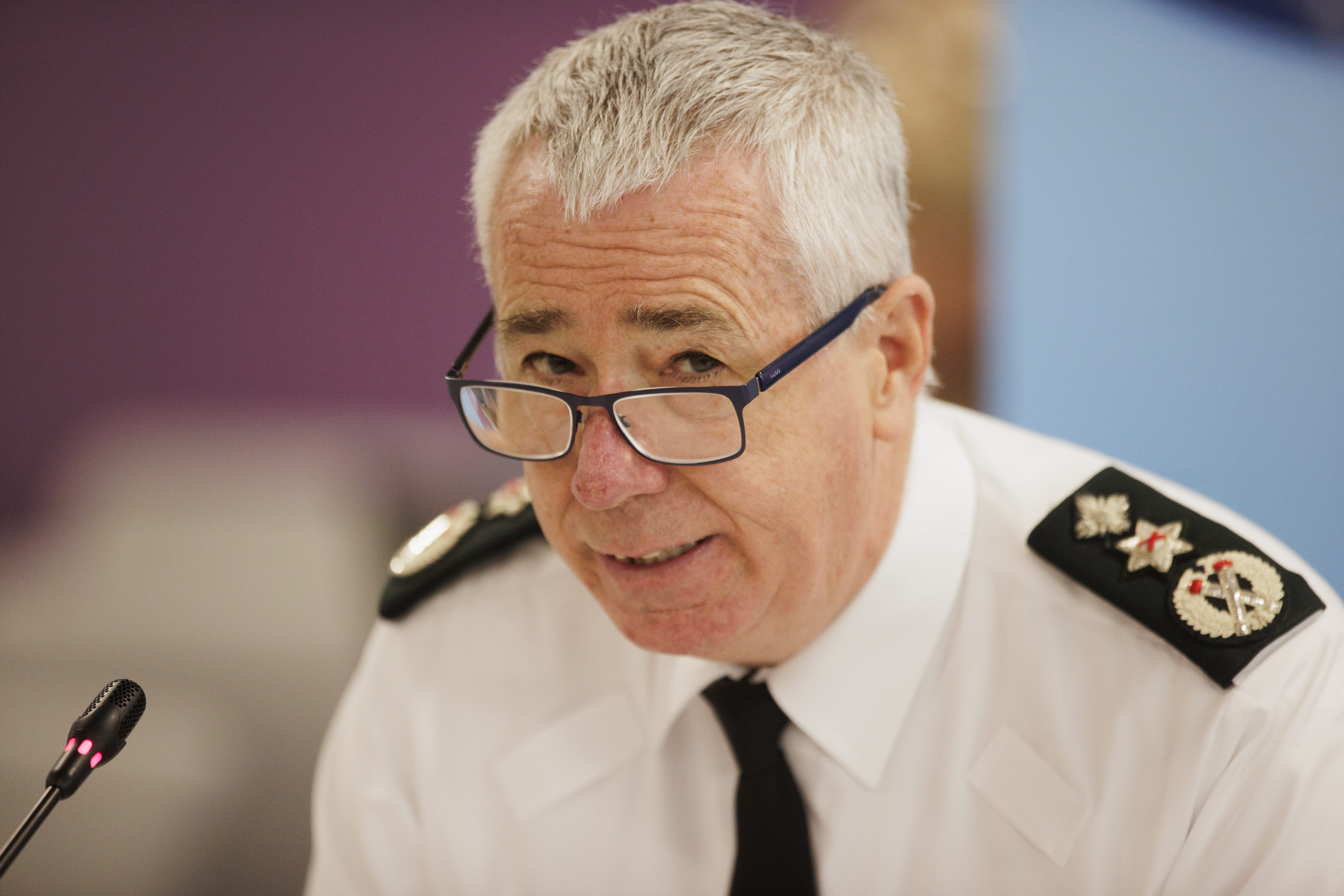Chief Constable announces independent probe of journalist surveillance claims
Angus McCullough KC has been appointed to lead the review.

Northern Ireland’s chief constable has announced an independent review to look at allegations of the police surveillance of journalists.
It comes after an Investigatory Powers Tribunal (IPT) hearing in London sparked alarm.
The hearing was during an ongoing case examining allegations that investigative reporters Barry McCaffrey and Trevor Birney were subject to unlawful covert intelligence by the police.
Chief Constable Jon Boutcher said he has appointed Angus McCullough KC to conduct an independent review of any PSNI use of surveillance against journalists, lawyers and non-governmental organisations.
Mr Boutcher also said he wanted to comment on what he termed an “inaccurate interpretation” of documents in the IPT.
He said a “defensive operation” referred to a routine professional standards practice in terms of potential leaking of information to media.
He said the PSNI’s Professional Standards Department Anti-Corruption Unit have methods including, carrying out periodic checks on phone calls made from police telephone extensions and police-issued mobile phones.
“The numbers called are checked against the numbers held by PSNI for journalists. There is nothing covert about this procedure,” he said.
“The journalists’ numbers are either ones that are publicly available or are ones that the journalists have themselves supplied to PSNI as contact numbers.
“If an unexplained call is discovered, PSD send an email to the user of the PSNI extension, asking for an explanation.
“To further reassure people, this practice is absolutely not about identifying whistle-blowers, for which there are very clear legal protections for those who are motivated to make public interest disclosures. However, if a police officer or staff member is involved in serious criminality, we have a duty to the public to investigate this.”
He also said a list of eight redacted names referred to are not the names of journalists being targeted through surveillance, and “relate to a completely different matter”.
“The names are not those of journalists. For obvious reasons of privacy, and to protect police operations, those names have not been made public,” he added.
He said documents have been made available in unredacted form to the IPT, which he said will consider them fully at its hearing in October.
Mr Boutcher said the McCullough Review is for “further reassurance”.
“To add further reassurance, and in line with my statutory duties to report to the Policing Board, I have also appointed Angus McCullough KC to conduct an independent review of any PSNI use of surveillance against journalists, lawyers and non-governmental organisations or any groups that have special status,” he said.
“His role will not extend to anything that is currently within the scope of the IPT proceedings.”
It will be supported by a group of experts and stakeholders including former police ombudsman Baroness Nuala O’Loan, Patrick Corrigan, Northern Ireland programme director at Amnesty International UK, Daniel Holder, director of committee on the Administration of Justice, Alyson Kilpatrick, chief commissioner of the Northern Ireland Human Rights Commission, David Lavery, chief executive of the Law Society of Northern Ireland and Seamus Dooley, assistant general secretary of the National Union of Journalists.
Mr Boutcher said a public report will be provided on completion of the review.
The chief constable’s statement has been given a cautious welcome by Mr Corrigan as “an important step towards full disclosure”.
“We will work alongside others to shape the terms of reference to ensure the review has full access to all documents and personnel and is not hindered in its role of laying bare the extent of potentially unlawful surveillance practices,” he said.
Mr Holder added: “CAJ welcomes the initiative of the Chief Constable to establish the McCullough Review to examine the broad concerns regarding PSNI surveillance practices.
“This review allows the Policing Board and Investigatory Powers Tribunal to retain their own distinct responsibilities. In our independent capacity we will engage to seek for the review to address our concerns.”
Bookmark popover
Removed from bookmarks